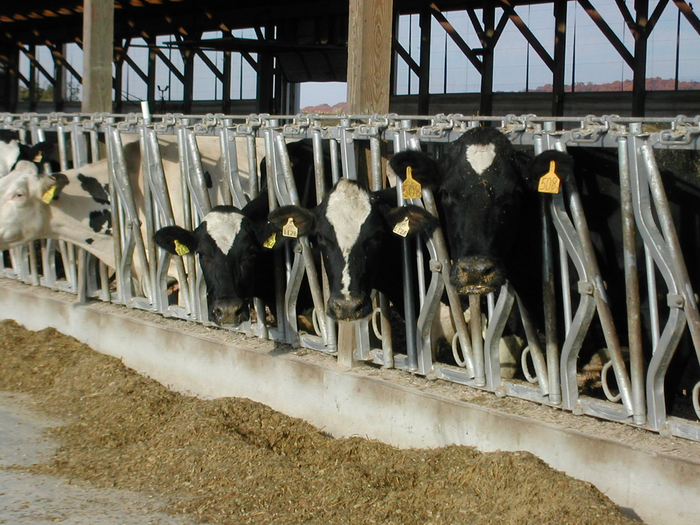Philadelphia, September 28, 2022 – Genetic selection is a powerful tool to improve livestock production, given that genetic gains are cumulative and permanent, and feeding behavior in cows may be used as an indicated trait for feed efficiency. In a new report in the Journal of Dairy Science®, published by FASS Inc. and Elsevier, eight researchers from the University of Wisconsin (Madison, WI), Council on Dairy Cattle Breeding (Bowie, MD), and Michigan State University (East Lansing, MI) concluded that measures of feeding behavior could be useful indicators of dairy cow feed efficiency, and individual cows that eat at a slower rate may be more feed efficient.

Credit: Ken Olson, PhD, PAS
Philadelphia, September 28, 2022 – Genetic selection is a powerful tool to improve livestock production, given that genetic gains are cumulative and permanent, and feeding behavior in cows may be used as an indicated trait for feed efficiency. In a new report in the Journal of Dairy Science®, published by FASS Inc. and Elsevier, eight researchers from the University of Wisconsin (Madison, WI), Council on Dairy Cattle Breeding (Bowie, MD), and Michigan State University (East Lansing, MI) concluded that measures of feeding behavior could be useful indicators of dairy cow feed efficiency, and individual cows that eat at a slower rate may be more feed efficient.
Due to the lack of feeding behavior genetic studies in lactating dairy cattle and the potential for using these traits as indicators of feed efficiency, the objective of this study was to investigate different feeding behavior traits and their genetic associations with feed efficiency traits in lactating US Holstein cows. Researchers estimated genetic parameters for feeding behavior traits using daily records.
“Interestingly, some feeding behavior traits were strongly genetically correlated with feed efficiency,” said lead researcher Ligia Cavani, PhD, Department of Animal and Dairy Sciences, University of Wisconsin. The research team found that feeding rate showed a strong positive genetic correlation with dry matter intake, metabolic body weight, and residual feed intake in particular.
The researchers used data from daily feeding behavior records of 1,328 Holstein cows in 31 experiments conducted from 2009 to 2020 in a facility at the University of Wisconsin-Madison Emmons Blaine Dairy Cattle Research Center (Arlington, WI). The facility used an automated intake recording system, which permits one animal to access the feeder at a given time. The feeding behavior traits considered included number of feeder visits per day, number of meals per day, duration of each feeder visit, duration of each meal, total duration of feeder visits, intake per visit, intake per meal, feeding rate per visit, and feeding rate per meal.
Overall, our results suggest that measures of feeding behavior could be useful indicators of dairy cow feed efficiency and that individual cows that eat at a slower rate may be more feed efficient,” said Cavani.
Journal
Journal of Dairy Science
DOI
10.3168/jds.2022-22066
Method of Research
Observational study
Subject of Research
Animals
Article Title
Estimates of genetic parameters for feeding behavior traits and their associations with feed efficiency in Holstein cows




